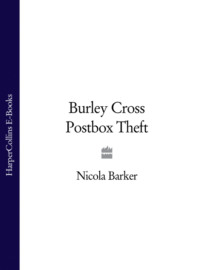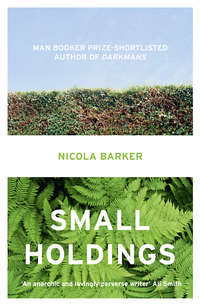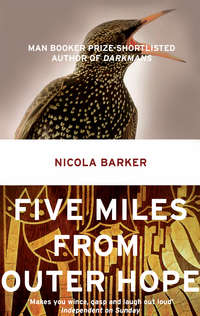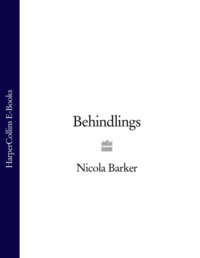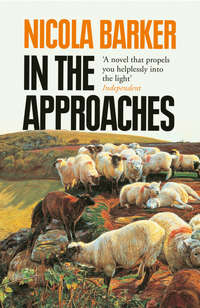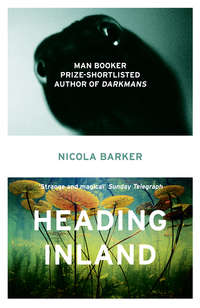
Полная версия
The Yips
He holds up the palmistry book with a suitably portentous expression.
‘I seriously doubt that,’ Stan quickly (and firmly) debunks his theory. ‘It’s a precious, family heirloom, not just some crummy, old book that nobody cares about.’
‘But that’s the very nature of an heirloom, don’t you see?’ Ransom exclaims, frustrated. ‘They’re not especially important – not in themselves. They’re just old things from the past that “represent” stuff …’ – he rolls his eyes, boredly – ‘stuff about, urgh … I dunno … ideas and memories and feelings and shit, but they don’t actually mean anything. They’re not actually worth anything …’
‘Well you were interested enough to take a look at it,’ Stan mutters.
‘This house could suddenly go up in flames!’ Ransom leaps to his feet, dramatically. ‘Tonight! Next weekend! An electrical fault! It could be razed to the ground! Then all this worrying and heart-searching will’ve been a complete waste of bloody energy.’
Stan indicates, mutely, to a small, flashing smoke alarm which is situated on the ceiling directly above their heads.
‘A flood, then,’ Ransom improvises, irritated. ‘A flash-flood – and you barely have time to evacuate the place …’
‘In Luton?!’ Stan snorts.
‘Yeah. Why not?’
‘No big rivers.’
‘None at all?’
‘The Lee, but that hardly counts.’
‘No canals? No lakes?’
Stan gives this some thought. ‘I suppose there’s always the lake over in Wardown Park, but that’s –’
‘A burst water main! Hah! ’ Ransom slaps the worktop, victorious. ‘I rest my case!’
‘These are Mallory’s things, anyway,’ Stan persists (instinctively shielding the vulnerable clover from Ransom’s violent show of exuberance). ‘They’re her dead mum’s things. They belonged to her dead mother,’ he reiterates (just in case Ransom was in any, remaining doubt about the objects’ sacred provenance). ‘Mallory’s the one you’ve got to be seriously worried about here.’
‘Mallory’s just a kid!’ Ransom swiftly pooh-poohs him. ‘She probably won’t even notice …’
‘Oh really?!’ Stan guffaws. ‘You obviously don’t know Mallory very well. Mallory’s officially the world’s most uptight kid. She’s a neat-freak – a lunatic. She pretty much has a heart attack if she steps in a puddle on her way to school. Top of her Christmas list last year was a shoe store and a lint roller.’
‘Well I bet Mallory has loads of knick-knacks knocking about the place from when her mum was still alive,’ Ransom contends.
‘There was her mum’s old teddy bear …’ Stan willingly concedes.
‘A teddy bear!’ Ransom throws up his hands. ‘Perfect! What better memento of a loved one than a teddy bear?’
‘… but it was destroyed by moths,’ Stan finishes off.
‘Oh.’
‘And there was her mum’s gold, heart-shaped locket with a tuft of her dad’s hair hidden inside …’
‘Bingo!’ Ransom snaps his fingers. ‘Top that! Precious, wearable and sentimental.’
‘… but it was stolen from her locker at the swimming pool last year.’
A lengthy silence follows in which Ransom stares, inscrutably, into the middle distance (pulling rhythmically – and not a little repulsively – at the hair under his armpit), until, ‘So what the heck is that thing?’ he finally demands, pointing. ‘A jeep, a van, a truck …?’
‘Cheiro,’ Gene says, ‘was this well-known –’
‘Palm-reader,’ she interrupts, ‘and a clairvoyant. Yeah. I know all about him.’
Valentine holds out her hand. ‘Can I take a proper look?’
Gene removes the ring from his little finger and passes it over. They are standing in the hallway together.
‘Although the story’s probably just apocryphal.’ He shrugs, noticing how her make-up is perfect now (the bright, red lipstick no longer smudged at one corner but adhering – neatly and faithfully – to the smooth line of her lips).
‘Apocry-what?’ She grins up at him.
‘Apocryphal. Not genuine. My mother was a professional palmist. I suppose it was a rather convenient piece of lineage to have.’
Valentine inspects the ring closely.
‘It’s incredibly pretty,’ she murmurs. ‘Is that a ruby?’
As she pores over the ring, Gene’s eyes are drawn to the short, delicate fronds of auburn hair at the nape of her neck which protrude – in irresistible wisps – from below her scarf.
‘Is that a ruby?’ she repeats, glancing up.
‘A ruby?’ Gene starts. ‘No. No, it’s actually a garnet. I believe it’s Persian. He apparently wore it on the little finger of his right hand to ward off evil spirits.’
He smiles, drolly.
‘And the cigarette case? Do you have that, too?’ Valentine wonders (ignoring the drollery).
‘Pardon?’
‘The cigarette case. Wasn’t it the silver cigarette case that saved his life when he was stabbed by a disgruntled client in his New York apartment?’
Gene looks bewildered.
‘There’s no official biography’ – Valentine shrugs – ‘but you can find out all about him on the internet. His books still sell in bucket-loads – they’re considered classics in the field. From what I can recollect, I’m pretty sure he was raised in Ireland, although he finished up in California, working as a screenwriter …’
‘I get the general impression,’ Gene interjects (somewhat dryly), ‘that his personal history probably always owed a certain debt to the screenwriter’s art.’
‘So there’s a powerful emotional connection with your mother, at the very least,’ Valentine ruminates.
Gene frowns, not following her logic.
‘They both enjoyed spinning the odd yarn.’ She grins.
He considers this for a second and then smiles himself.
‘Although if your mother’s story is to be considered credible,’ she reasons, ‘if the connection is biological, then you’d actually be his great-great-nephew or something …’ She raises a mildly satirical brow. ‘I never got the impression that Cheiro was “the marrying kind”.’
‘There was a sister,’ Gene muses, ‘a Mary Louise Warner, but I suspect our connection might’ve been by marriage alone.’
Valentine continues to inspect the ring.
‘Anyhow …’ Gene draws a deep breath, struggling to re-focus. ‘I just didn’t feel it would be right to let the incident pass without at least drawing your attention to it in some way.’ He glances down the corridor and indicates (somewhat limply) towards the child.
Valentine slips the ring on to her index finger, straightens out her arm and holds it at a distance (to admire it, in situ). ‘I’m really interested in palms,’ she murmurs, turning her hand over and inspecting her own, ‘I’m obsessed by the skin, in general, same as my dad was. Just how strong it is – how tough and soft and durable. The skin’s actually the largest organ of the body. Did you know that?’
Gene doesn’t respond. He’s still peering over at Nessa who is currently having a loud, imaginary conversation on the heavy, black, Bakelite phone.
‘Just forget about the other thing.’ Valentine smiles (glancing over towards the child herself). ‘Sasha’s so uptight about that kind of stuff. Nessa’s still a baby. She’s a free spirit. She hates to feel confined – hemmed in – by clothes, walls, rules … And she’s the world’s worst exhibitionist. I’ve got no idea where …’
Valentine pauses for a second, mid-sentence, then frowns. ‘I mean I’m sure she’ll grow out of it. It’s just this silly phase she’s going through.’
‘She’s certainly quite a character,’ Gene murmurs as Nessa lifts up the back of her dress, pulls the hem over her forehead and commences wearing it as a kind of half-veil, beaming all the while.
‘She’s completely brazen!’ Valentine chuckles. ‘Brimming with confidence! Life has a nasty habit of knocking the stuffing out of people …’ She gazes up at him, appealingly.
‘I take your point,’ Gene concedes, ‘although I do think that when girls reach a certain age …’ He pauses, cautiously. ‘And I have a daughter of my own, so I’m speaking from painful experience here … These things can occasionally start to develop – if you’re not extremely careful – into something rather more … uh … something rather more …’
‘But she’s still just a baby!’ Valentine repeats.
‘Yes. She is. Absolutely …’ Gene clears his throat. ‘It’s simply that the other children in the group – the boys, in particular …’
Gene focuses, intently, on the aspidistra. He can’t quite believe he’s having this conversation.
‘The boys?’ Valentine’s brows rise.
‘Yeah. Yeah. The older boys,’ Gene murmurs. ‘It’s nothing explicit, nothing … just a … a particular kind of … well … a certain kind of … of atmosphere …’
‘An atmosphere?’ Valentine looks shocked. ‘An atmosphere?’ she repeats, lifting a tentative hand to the back of her head.
‘Yeah …’ Gene follows the progress of the hand from the corner of his eye (it’s an attractive hand – soft and graceful, with lean, tapering fingers. An artistic hand, he suddenly thinks, switching, automatically, into palm-reading mode, a conic hand …). ‘Yeah …’ he repeats, blinking. ‘I mean they’re certainly not doing anything … anything inappropriate, they’re just naturally … uh … inquisitive. Just registering an … an idle interest, so to speak. There’s nothing … nothing specifically wrong about it – not exactly … yet it still feels slightly … well …’ – he winces – ‘slightly … what’s the word? I don’t know … slightly, uh, well, unsavoury …’
‘Unsavoury?’ Valentine snorts, incredulous. ‘Bloody hell! They’re only kids, for heaven’s sake!’
‘Absolutely!’ Gene insists. ‘Completely!’ he reaffirms. ‘I mean it would be ridiculous – stupid, ludicrous – to blow this thing all out of –’
‘Wouldn’t it, though?’ Valentine interrupts, tartly.
Gene winces, stung.
‘I’m sorry,’ she immediately apologizes.
‘No.’ Gene shakes his head. ‘It’s fine. I probably deserved that. I’ve overstepped the mark.’
A strange pulse passes between them.
‘It just seems like a sad reflection of the modern world,’ Valentine finally volunteers, ‘if an innocent, little girl, a child, can’t just –’
‘If you’ll forgive me for saying so,’ Gene promptly interrupts her (his confidence burgeoning, exponentially, as the discussion moves from the personal to the generic), ‘this isn’t really about the relative goodness or badness of the world. It’s not a complex social or philosophical issue, it’s purely a pragmatic one – a practical one. It’s essentially about accepting our responsibility as adults. Children need protecting – as much from themselves as from other people – protecting from their own innocence, even …’
As Gene speaks, a commotion becomes audible in the street outside. A vehicle pulls up at the kerb, the engine cuts out, car doors slam, the gate creaks, footsteps can be heard tramping up the garden path (and voices, engaged in lively conversation).
Valentine gives no indication of having noticed, though. She continues to stare up at him, totally engrossed in what he’s saying, her lips moving as his lips move, her hands knitted together so tightly that the knuckles are whitening. On noticing her hands – the stress in them – Gene suddenly loses the strand of what he’s saying. He glances over towards the door. ‘I should probably … uh …’ he mutters, gesticulating.
Valentine says nothing for a few seconds and then, ‘Yes,’ she murmurs, her voice unexpectedly flat and colourless. Gene turns and takes a small step forward.
‘Wait …!’
Valentine reaches out her arm and touches his shoulder. He spins around, as if stung. She pulls his ring off her finger and offers it to him. He takes it from her. He starts to say something – something off the cuff, something low and intense and curiously heartfelt – then the door flies open and his words are swiftly obliterated in the ensuing commotion.
‘Shouldn’t you be at school or something?’
They are standing in the garden together inspecting a large, tarpaulin-covered vehicle. Ransom has thrown on his jeans again (in haste – one of the pockets is hanging out) along with an antique, military cap and matching jacket (he’s still resolutely bare-chested underneath it). The uniform he unearthed (mere moments earlier) in the hallway cupboard as Stan hastily disposed of the mop and bucket.
The cap’s a perfect fit, but the jacket’s strong, sepia-coloured fabric forms two taut ridges between his shoulder blades and creaks a fusty protest from beneath his armpits.
‘I’ve got the day off, actually,’ Stanislav swanks.
‘Really?’ Ransom starts grappling, ham-fistedly, with the tarpaulin. ‘How’d you manage to wrangle that, then?’
‘School Exchange Programme.’ The teenager tries (and fails) to look nonchalant. ‘I’m flying to Krakow this afternoon. For a month.’
‘Ah, Krakow.’ Ransom smiles, dreamily. ‘There’s a fabulous Ronald Fream course in Krakow. The Krakow Valley Golf and Country Club. Ever played there?’
Stan shakes his head.
‘Well you should definitely check it out if you get the opportunity. It’s fuckin’ amazing. There’s this crazy – almost … I dunno … Jurassic – feel to the landscape. The tee distance is incredible – something like six and a half thousand –’
‘I’m actually more into basketball myself,’ Stan interrupts, pushing aside a couple of the tarpaulin’s supporting bricks with a pristine-trainered toe.
‘Basketball?’ Ransom is nonplussed. ‘D’you play at all?’
As he speaks he instinctively starts feeling around inside the pocket of the jacket for his cigarettes, but ends up gingerly withdrawing an old, red tassel – heavily faded – of the kind that might be attached to a trumpet or bugle. He stares at it for a moment, perplexed, then shoves it away again, frowning.
‘I started the school team,’ Stan volunteers.
‘Really?’ Ransom appraises him, quizzically. ‘But surely you’re way too short to take it seriously? I mean how tall are you?’ He quickly sizes him up: ‘Five foot four? Five foot five?’
‘Basketball’s huge in Europe right now,’ Stan mutters (as if his chosen sport’s burgeoning size on the international scene must, inevitably, have some significant bearing on his own – admittedly diminutive – status), ‘and it’s really massive in the old Eastern Bloc: the Russians just can’t get enough of it.’
‘They friggin’ love it in China,’ Ransom volunteers, ‘and let’s face it’ – he shrugs, obligingly – ‘they’re pretty much all short-arses over there.’
Stan gazes at the golfer, balefully, as if awaiting a punchline (or – better still – a sheepish retraction of some kind). None is forthcoming.
‘I used to love shooting hoops as a kid,’ Ransom reminisces, ‘but golf was always destined to be my game of choice. I suppose you could say it was written in the stars …’ He waves a lordly hand, heavenward. ‘I mean I was sporting mad, in general; played footie, rugby, had a stunt-bike, skated, skateboarded. We lived alongside this small, public course in Ilkley. I started caddying for my dad just about as soon as I could toddle. Then, after inheriting my grandad’s old clubs when I was around four or five, I started taking a serious interest in the game myself …’
‘Four or five?’ Stan echoes, almost disbelieving.
‘You betcha!’ Ransom nods. ‘Dad wanted to cut the clubs short but I wouldn’t hear of it. Had quite a tantrum about it as I recall. Because I always enjoyed playing with them at full stretch.’ He lifts his chin, proudly. ‘I relished the challenge. I suppose you could say I’m from the “Grip it and rip it” school. A feel player. My swing’s always been pretty powerful, pretty distinctive, pretty … uh … loose.’
Ransom performs a basic simulacrum of his swing (although its grand scope is somewhat retarded by his beleaguered armpits). ‘Pundits like to call it “unorthodox”, or … or “maverick”’ – he grimaces, sourly – ‘or “singular”. Peter Alliss – the commentator? On the BBC? – he once called it “grotesque”. Grotesque?!’
The golfer gazes at Stan, horrified. ‘Unbelievable!’
Stan opens his mouth to comment.
‘But what Alliss simply doesn’t get,’ Ransom canters on, oblivious, ‘what he never got, is that I’m an instinctive player, a gut player. I play straight from here …’ He pats his breast-pocket, feelingly. ‘The heart,’ he adds (no hint of irony), ‘and that’s something you’re born with. It can’t be taught. I learned my game from the floor up. I developed it as a kid, inch by inch, through trial and error. Adapting my stroke – experimenting – making judgements – taking risks. I was relentless. Never took a lesson. Never needed to. Just used these …’
Ransom points at his two eyes: ‘Drank everything in, like a sponge. And it bore fruit. By ten I was playing off a handicap of seven …’
(Stan’s grudgingly impressed.)
‘By thirteen I was playing off scratch. Although my game went to shit for a while after my parents split up …’ Ransom begins searching the pockets of the military jacket for his cigarettes (then realizes – with a start – that the jacket isn’t actually his). ‘Got a fag on you by any chance?’
Stan shakes his head.
‘Messy, messy divorce.’ The golfer sighs. ‘My handicap shot up to five after Mam moved to St Ives with Roderick, her new partner. Although – on a purely selfish tip – I’d’ve never got to spend my summers down on the coast if the old folks’d stayed together. As it was I just had a blast, basically; staying out all hours, running wild, ripping it up in the surf … And whenever I got myself into a tight spot’ – he grins, mischievously – ‘exploiting that trusty, parental guilt mechanism for all it was worth …’
‘Jammy bastard,’ Stan mutters, jealous.
‘Don’t get me wrong,’ Ransom rapidly backtracks (keen to maintain his hard-bitten, northern lustre), ‘first and foremost I was always a hustler. Had to be. My folks weren’t made of money. Dad sold car insurance for a living. Mam worked in the school canteen. I raised the funds to surf by playing golf for cash. And while I was never what you might call an ambitious player, at least not in the formal sense of the word – never gave a toss about trophies and prizes and all that crap – I was competitive as all hell. Still am, to a fault. It’s like …’ He frowns. ‘It’s like I don’t care if I win the tournament, but I do care if I get thrashed by some smarmy, tight-arsed, Norwegian dick, dressed head to toe in fuckin’ …’
Ransom throws out an irritated hand. ‘… fuckin’ Galvin Green, who spends his entire life nibbling on energy bars and doing bench presses in the fuckin’ gym. It’s personal with me. Always has been. A pride thing. I need to be the big dog – the biggest dog – win or lose. And if I’m gonna lose, then I’ll piss all over the fairways. I’ll leave divots a foot fuckin’ deep. I’ll give the groundsman a fuckin’ coronary. I’ll be filthy. I’ll lose like a fucking pig. I’ll lose worse than anyone ever lost before. I’ll make an art out of it. I’ll hit the ball through the clubhouse window. I’ll play five shots from the car park. Because I’m a wild-card, Stan, a headcase: “Better to burn out than to fade away.” That’s always been my motto.’
Stan gazes at him, blankly.
‘Neil Young, dipstick! It’s the lyric Kurt Cobain quoted in his suicide note. You’re a teenager – you should know that. I quoted it at my coach the other day and he just stared at me, like – duh? I go, “It’s Neil fuckin’ Young, Roger.” He goes, “Neil Young? Of course it’s Neil Young! I love Neil Young! Are you kidding me?! The Jazz Singer’s my favourite film of all time!” I just looked down at myself and I thought, Ransom, you’re on a hiding to friggin’ nowhere here. So I sacked the little turd, on the spot.’
‘Seriously?’ Stan’s impressed.
‘Yeah.’ Ransom bridles. ‘Of course I’m fuckin’ serious. Although now the greedy twat’s suing me for unfair dismissal.’
‘Ouch.’
Stan looks pained.
‘The more I think about it, though,’ Ransom muses, adjusting his cap to a less rakish angle, ‘the more I feel like I’m … I dunno … like I’m a man out of time …’ He pauses, wistfully. ‘Nah-ah,’ he promptly corrects himself, ‘it’s worse than that. Sometimes when I walk into the locker room at the start of a tournament I feel like I’ve just landed from another planet. Like I’m extraterrestrial. An alien! And it’s not just that I’m Old School, that I’m Hardcore … It’s much more … I dunno … much more fundamental. There’s something different about me. A uniqueness. I have this … this natural … this basic … this essential quality about me which marks me out from ninety-nine per cent of players in the professional game right now …’ Ransom fixes Stanislav with an implacable stare. ‘D’you know what that quality is, Stan?’
Stan shakes his head.
‘Shall I enlighten you?’
Stan shrugs.
‘Personality!’ Ransom grins. ‘It’s personality, kiddo! I have character. Gallons of the stuff. And I’m just too damn creative – too much of a fuckin’ individual – to turn myself into one of those gormless, brainwashed, Ledbetter-style automatons who only ever plays the next hole, the next shot, while spouting endless, turgid platitudes about their “mental game” and the arc of their fucking “swing plane”. D’you know what I mean?’
Stan just gazes at him, blankly (he has no idea).
‘Lemme put it this way.’ Ransom gamely attempts to re-state his position: ‘I remember this shit-for-brains journo cornering John Daly outside the clubhouse at the start of a major tournament one time – I forget which tournament it was, off-hand – getting right up in his face and demanding to know what his “golfing strategy” was for the week’s play ahead. Daly’s obviously really unimpressed by this half-wit’s attitude, not to say bored and pissed off by the question itself, but, as always, he’s very friendly and courteous and listens to the journalist really politely before considering his reply. “My strategy?” he finally murmurs, plucking at his chin for a moment as if he’s going to say something really deep, really significant. “Yeah … Well I guess that would probably be …”’ Ransom clears his throat and then attempts a (perfectly passable) impersonation of Daly’s slow American drawl: “Hit the ball, find the ball, then hit the ball again.”’
Ransom smiles at Stan, beatifically. Stan looks puzzled.
‘“Hit the ball, find the ball …”’ Ransom repeats, slapping his hand against his thigh, snorting, ‘like this is the most incredibly profound, fuckin’ insight: “Hit the ball, find the ball …” Like this is the hugest fuckin’ revelation! Man! It was pure, undiluted genius! A defining moment in the history of the game! A two-finger salute to all the vultures and the bullshitters and the mind-wizards and the … the …’ (Ransom momentarily runs out of suitable targets for his mirthful ire, and flounders. His eyes fill with sudden, hot tears.) ‘It was absolutely fuckin’ brilliant,’ he huffs, then turns – blinking, self-consciously – and gazes, impatiently, past the modern, slightly shabby rectory building, to the large, somewhat static and forbidding, Victorian, red-brick church beyond.
‘What was that phrase Dad always liked to use?’ Valentine wonders, indicating, somewhat wryly, towards her mother. ‘Full of piss and vinegar?’
Her mother – who seems in unusually high spirits – is singing ‘Frère Jacques’ at the top of her lungs to a slightly bedraggled cat which is crouching, terrified, halfway up the stairs.
‘So what’re they trying to pin on me this time?’ Noel demands, slowly unwinding a grubby-looking keffiyeh scarf, while carefully ensuring that the sterile gauze dressings (which have been neatly applied to his neck beneath it) remain intact.
‘Pin on you?’ Valentine’s down on her knees, unfastening Nessa’s shoes. ‘Who d’you mean?’
‘Who?!’ Noel exclaims, thumbing over his shoulder, towards the front door. ‘Who the fuck else, stupid?!’
‘Watch your mouth, stupid!’
Valentine glances up at him, indignant, as she removes the first shoe. ‘And don’t call me stupid,’ she adds (as a guilty afterthought), inclining her head, warningly, towards the child.
‘Yeah, stupid !’ Nessa immediately echoes, snatching her other foot from her aunt’s grip, jutting out her chin and boldly squaring up to him.
‘Oh great.’ Valentine rolls her eyes.
‘Yeah, stupid !’ Nessa repeats, grabbing a handful of the baggy fabric of her father’s jeans and yanking at it, hard.


